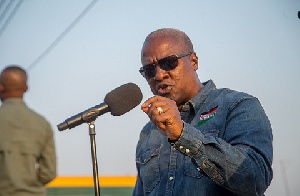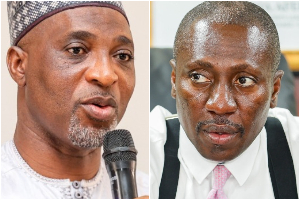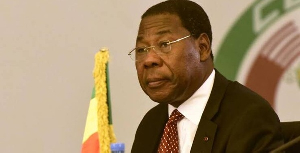By K. Badu
President Kufuor exerted dint of critical thinking, worked strenuously for eight solid years, laid a propitious economic foundation and retired honourably. He then passed on the baton to the late President Mills on 7th January 2009, following his victory in the second round election on 28 December 2008.
It must, however, be emphasised that the late President Mills was extremely fortunate to have inherited a very good economic foundation laid by the effervescent President Kufuor and his equally hard working team.
Take, for instance, three years after former President Kufuor’s NPP government discovered oil in commercial quantities, the late President Mills turned on the valve at an offshore platform in December 2010 to pump the first commercial oil.
Lo and behold, Ghana joined the petroleum exporting countries. And believe it or not, Ghana started to export crude oil and thus boosted the economic growth. The economy grew from around 8.4 per cent to around 14 per cent by 2011 and Ghana reached the Lower Middle Income status.
“Ghana has come a long way and is the world's fastest growing economy today-2010.
“Ghana's economy is growing at a blistering 20.15 per cent, says Economy Watch.
“Blessed with rich reserves of natural resources, Ghana has suddenly turned around and is now speeding along the growth path.
“Ghana is oil-rich, has large gold and diamond deposits, and has a booming tourism industry” (Economy Watch 2010).
And, who said that the superb economic foundation laid by former President Kufuor and his team was not the main contributory factor in the Ghana’s economic upsurge back then?
Unfortunately, the late President Mills got carried away and somehow allowed the create loot and share cabals in his government to have their way. The incompliant cabals began to dip their ‘thievery’ hands into the national coffers.
The racketeers even managed to allocate judgement debt amount in the national budget (around GH600 million), with the sole objective to create, loot and share. Do you remember Woyome’s GH51.2 million scandalous judgement debt payment?
What about the undeserving $30 million judgement debt payment to the Waterville, the dubious $25 million to ISOFOTON, and a lot more reported to be amounting to a staggering GH800 million?
Apparently, things started to fall apart. It went from bad to worse following President Mills sudden and mysterious death. The conspiratorial plotters then had a field day leading to the 2012 general election.
It is, therefore, worth stressing that President Mahama and his NDC apparatchiks went berserk in their desperation to cling on to power. Thus they broke all conventions. Many government departments spent over and above their allocated budgets. The general belief back then was that they bought votes with the tax payers money.
They clung on to power following the controversial election on 7th December 2012. But their victory came with huge costs to the state.
The previously single digit inflation and budget deficit doubled astronomically. The GH9.5 billion debt which former President Kufuor and his NPP government left in 2009 rocketed artificially to unpronounceable figures. Our total debt has since ballooned to GH112 billion as of October 2016.
Let’s face it; Ghana is under the throes of economic collapse due to mismanagement and wanton sleaze and corruptions.
For example, Ghana’s economic growth slowed for the fourth consecutive year to an estimated 3.4% in 2015 from 4% in 2014 as energy rationing, high inflation, and ongoing fiscal consolidation weighed on economic activity (World Bank, 2016).
Moreover, the high inflation rate remain elevated at 18.5% in February 2016 compared to 17.7% in February 2015, even after the Central Bank’s 500 bps policy rate hikes (the inflation stands at 15.8 per cent as of October 2016).
As a matter of fact, Ghana cannot see any meaningful economic development, so long as the current economic managers are struggling to come up with expedient policies and only “kidding” around infrastructural projects.
Opinions of Wednesday, 30 November 2016
Columnist: Badu, K















